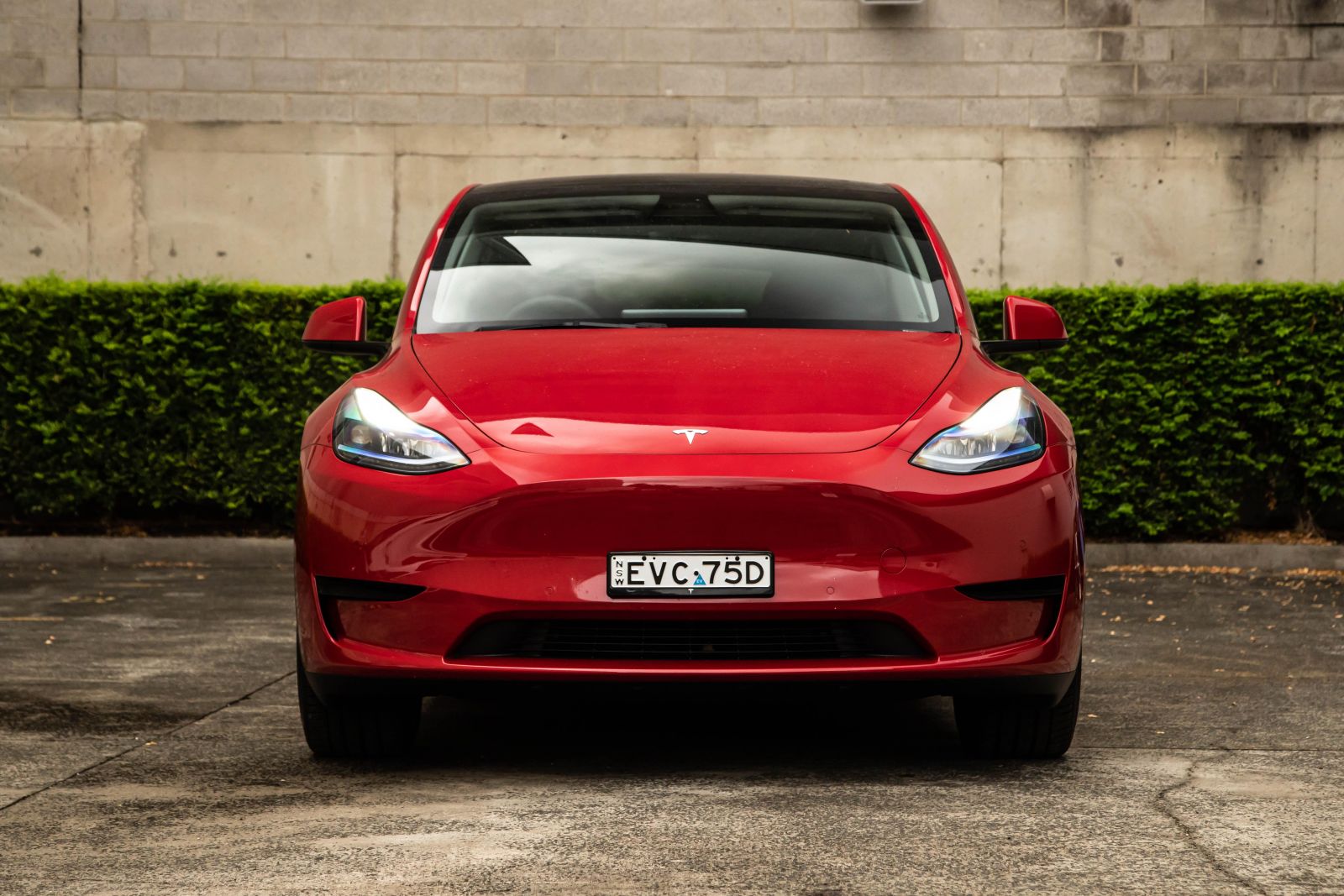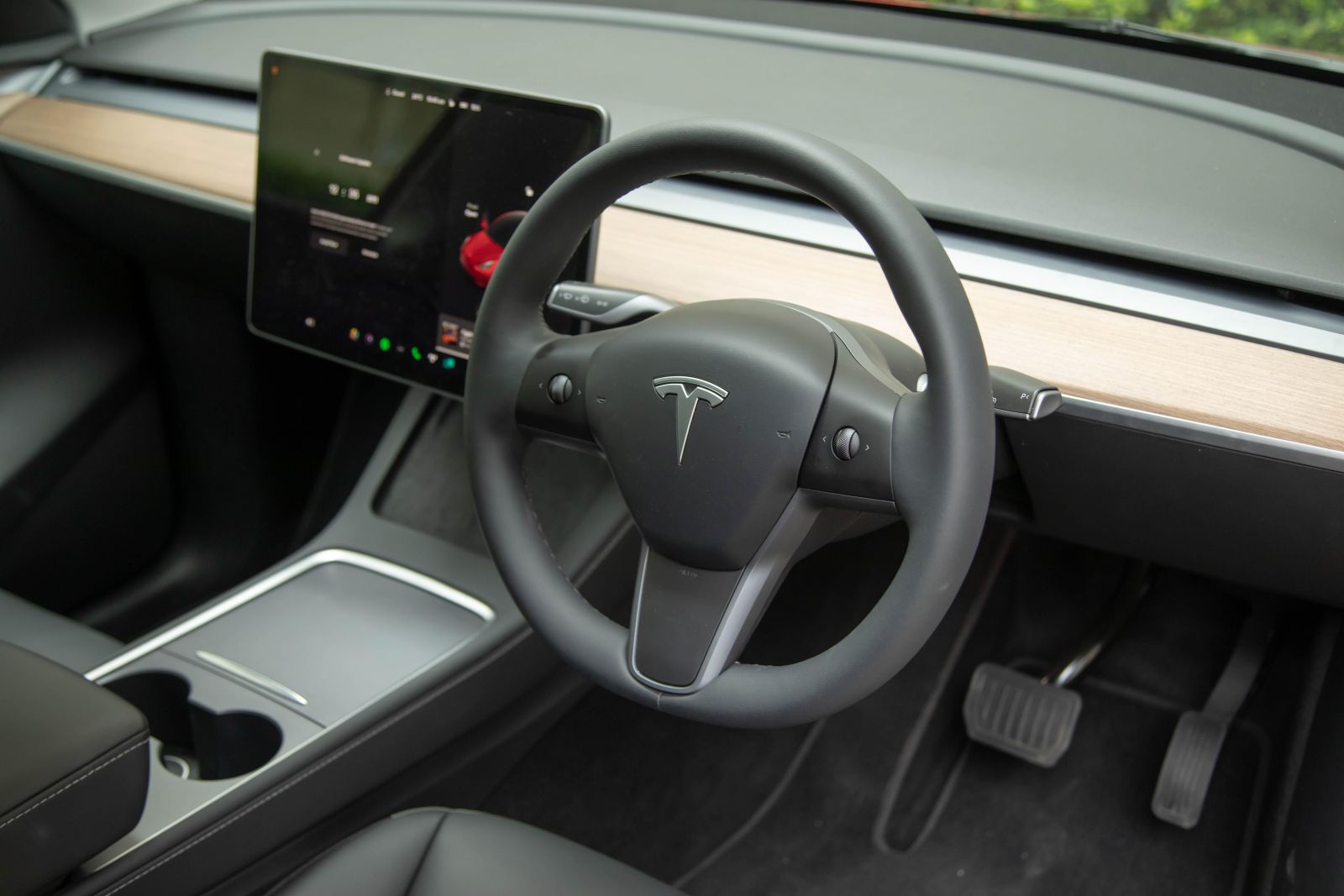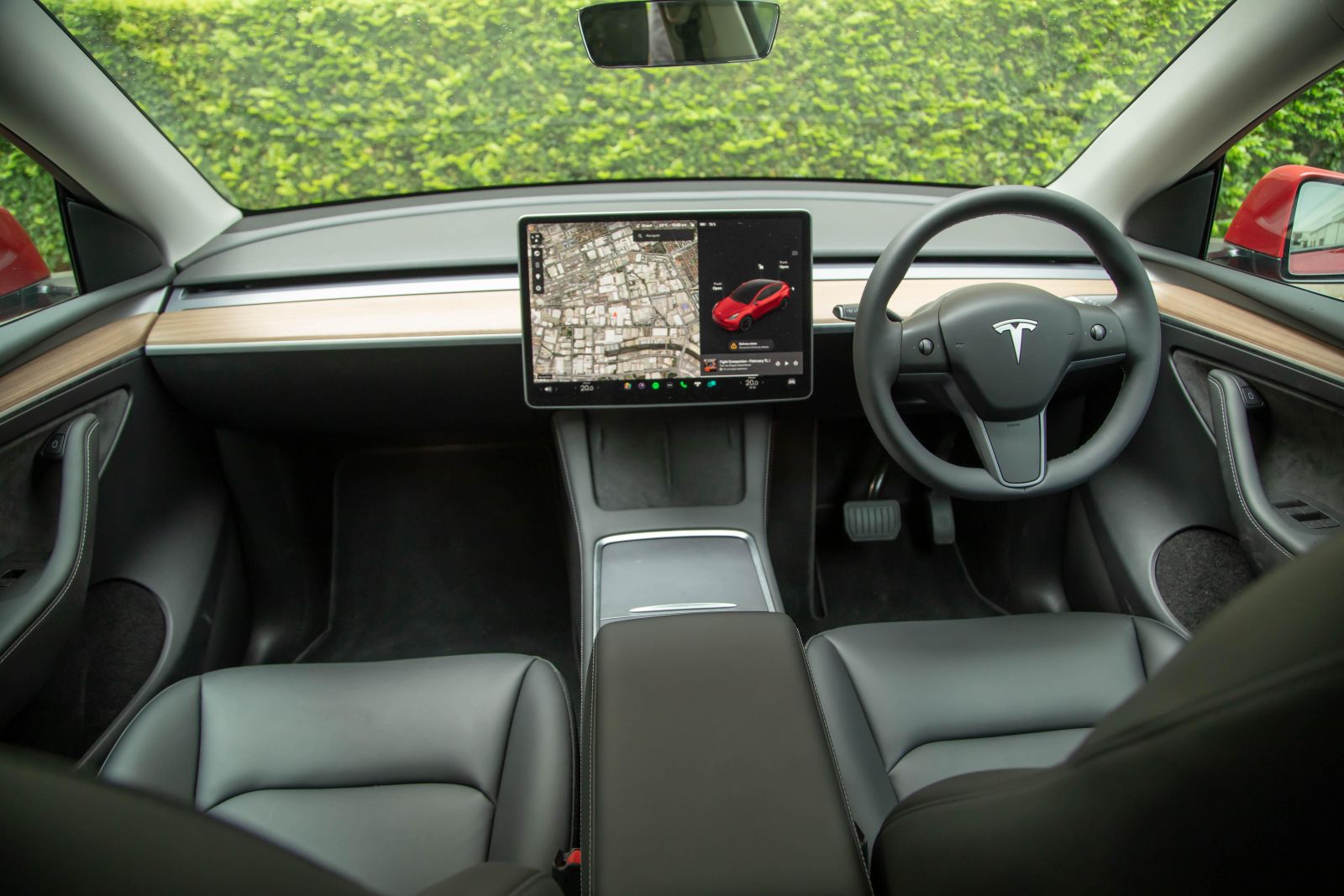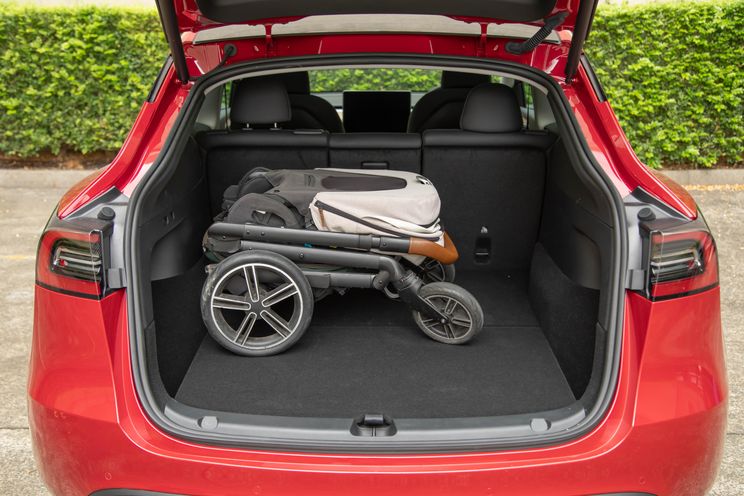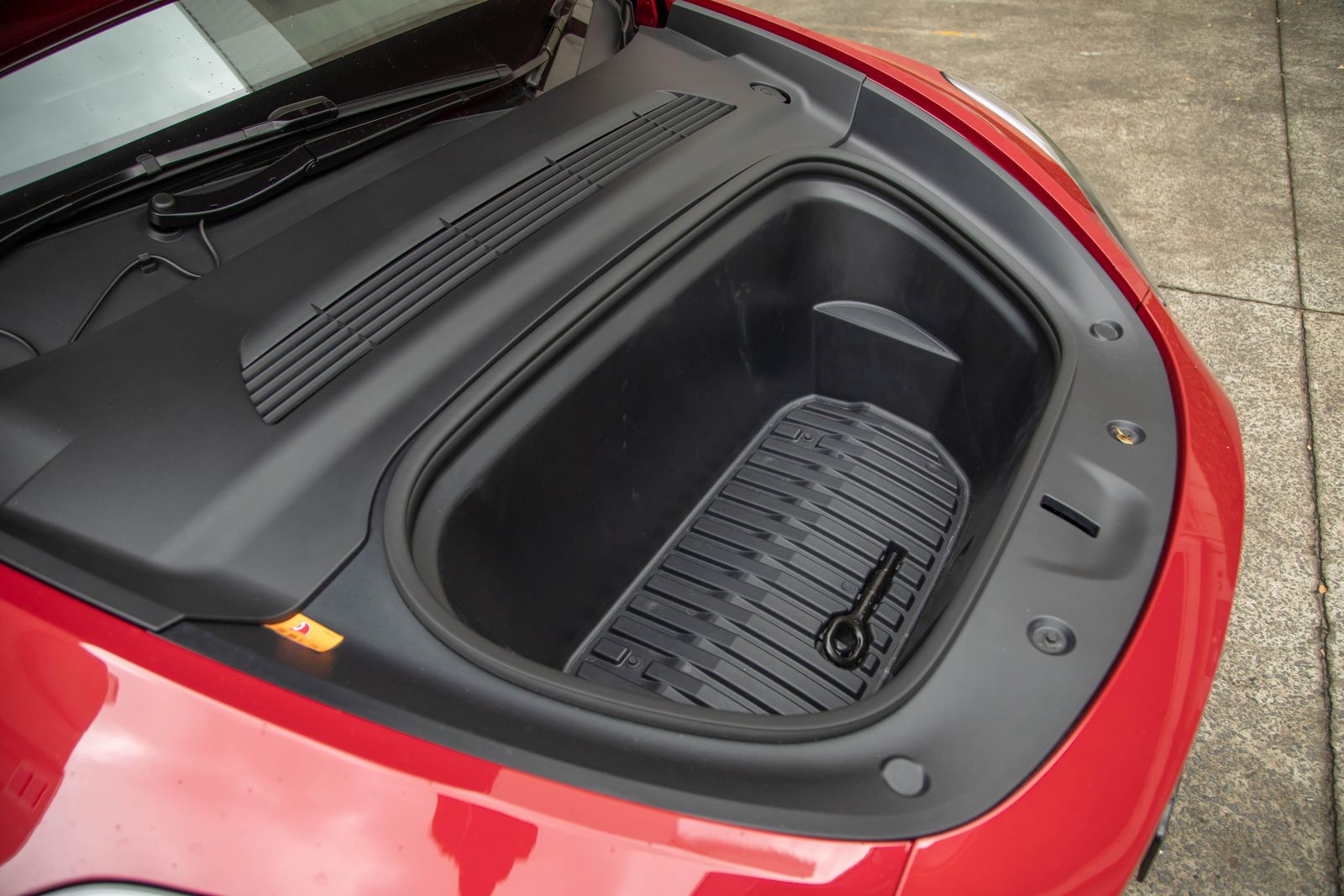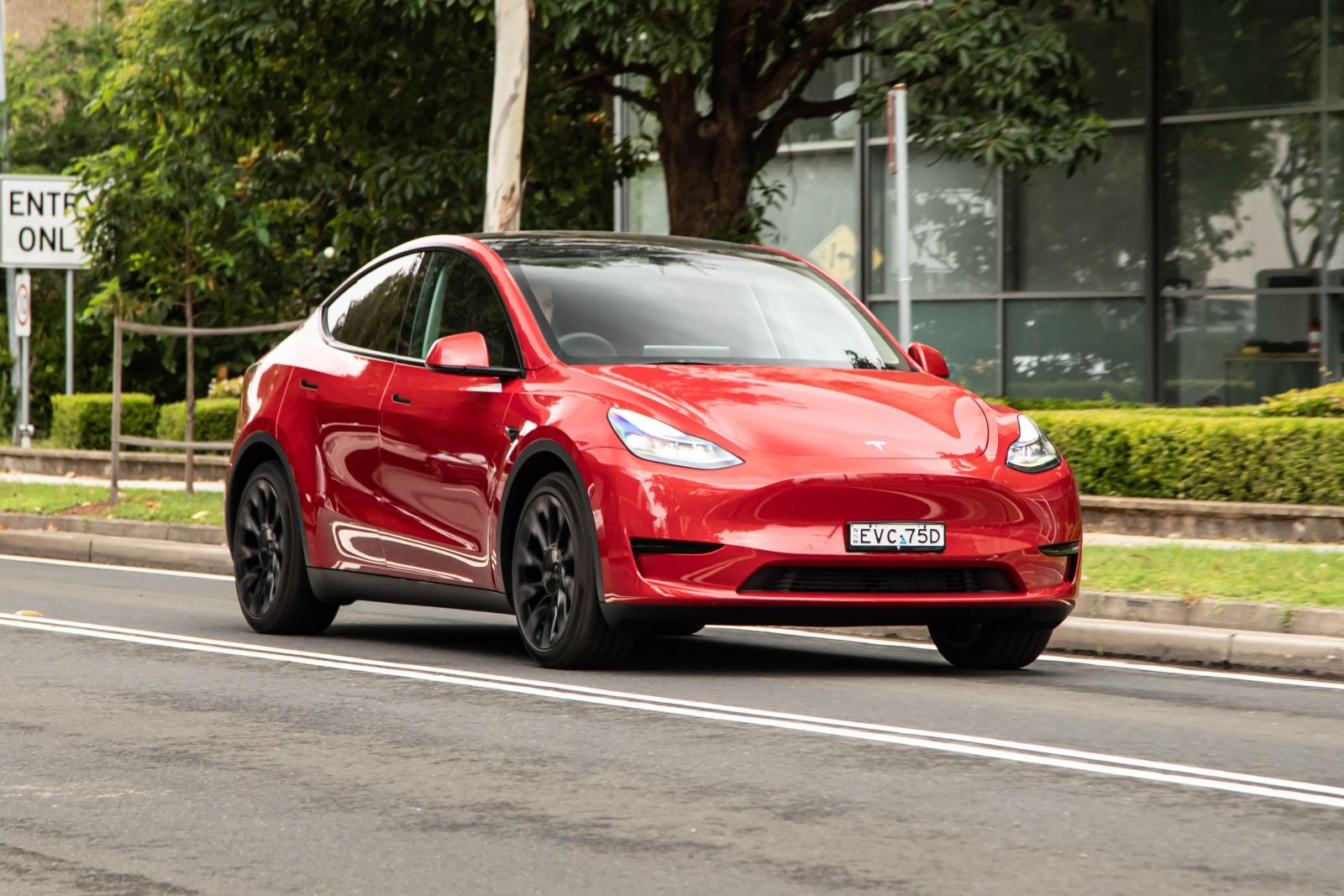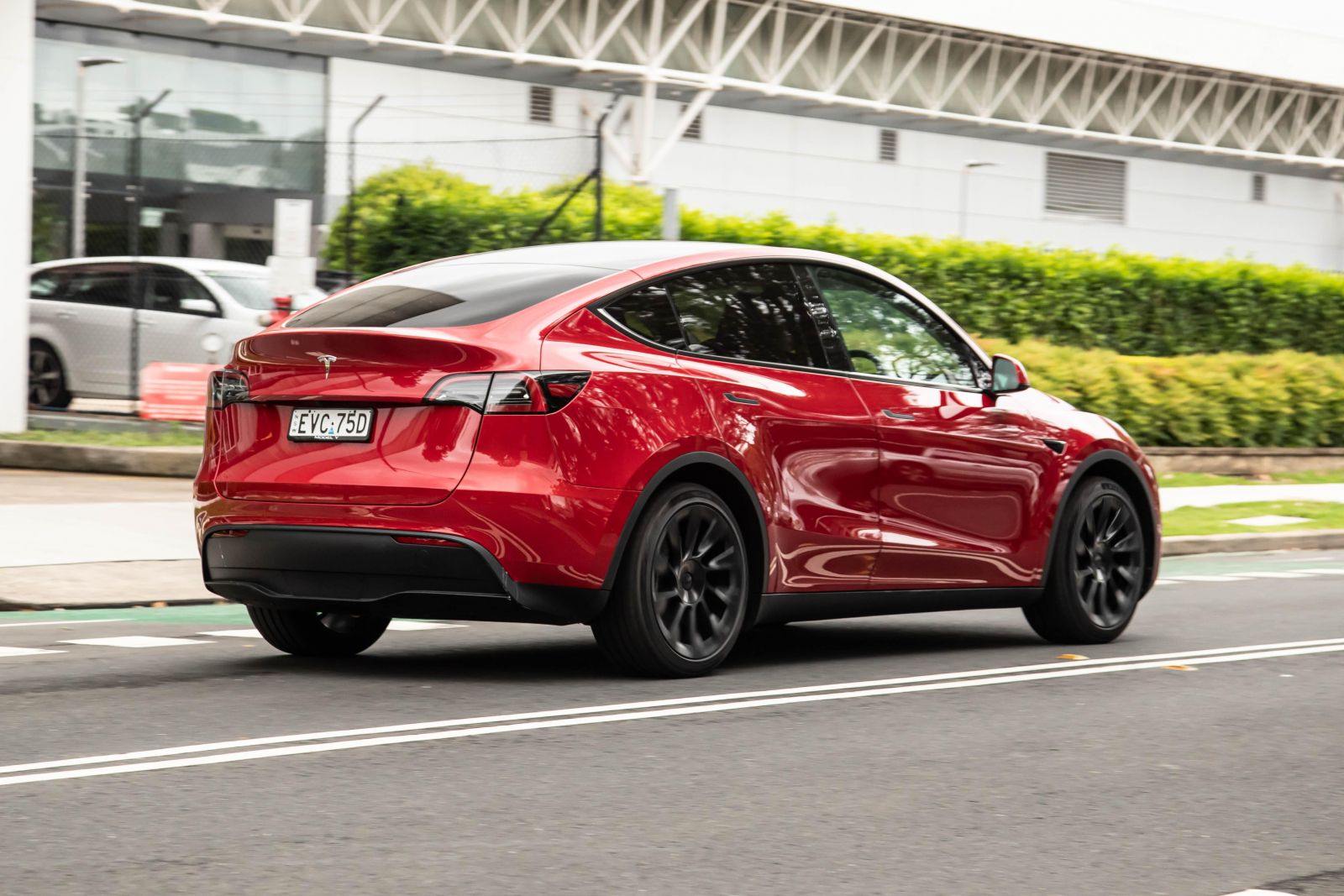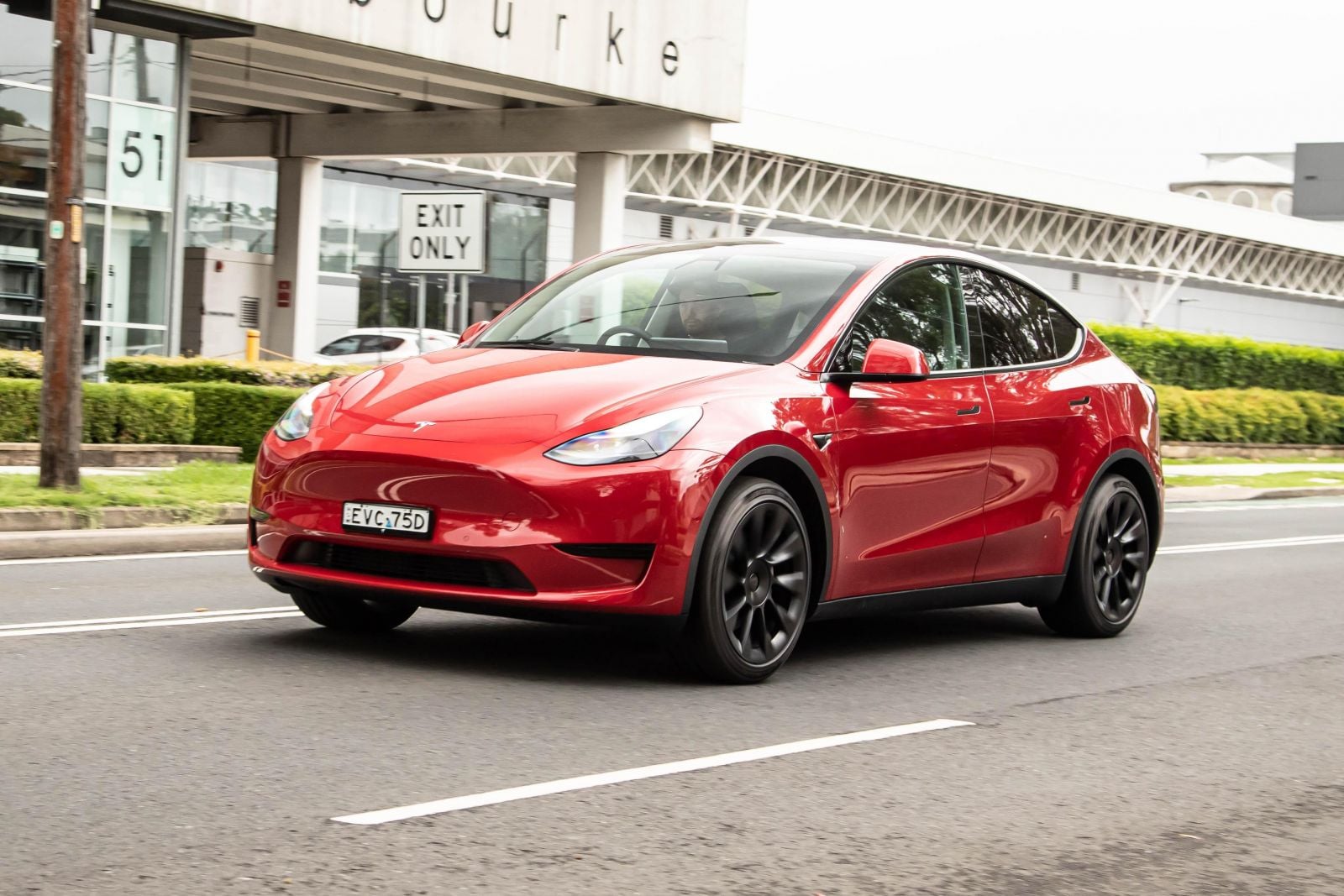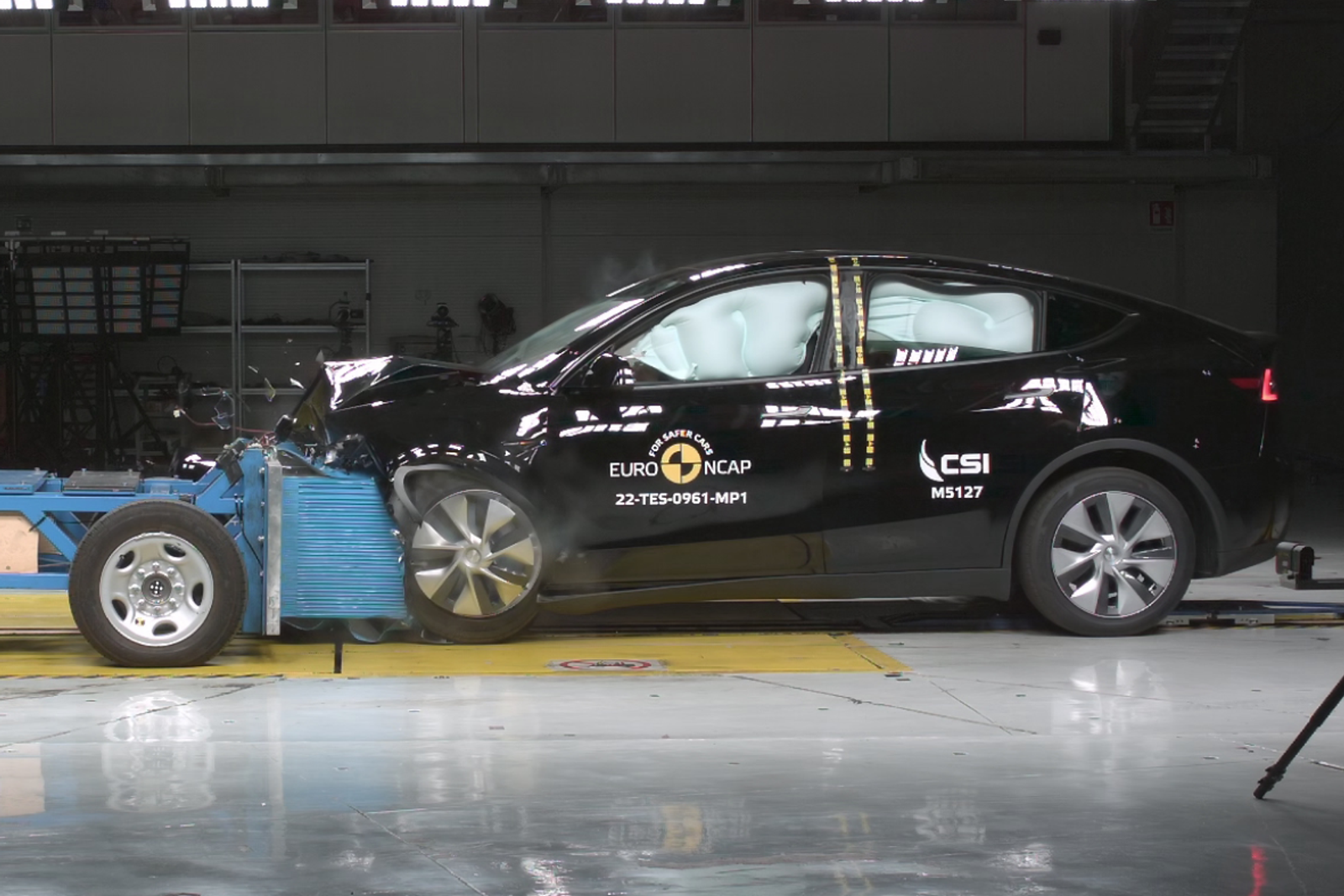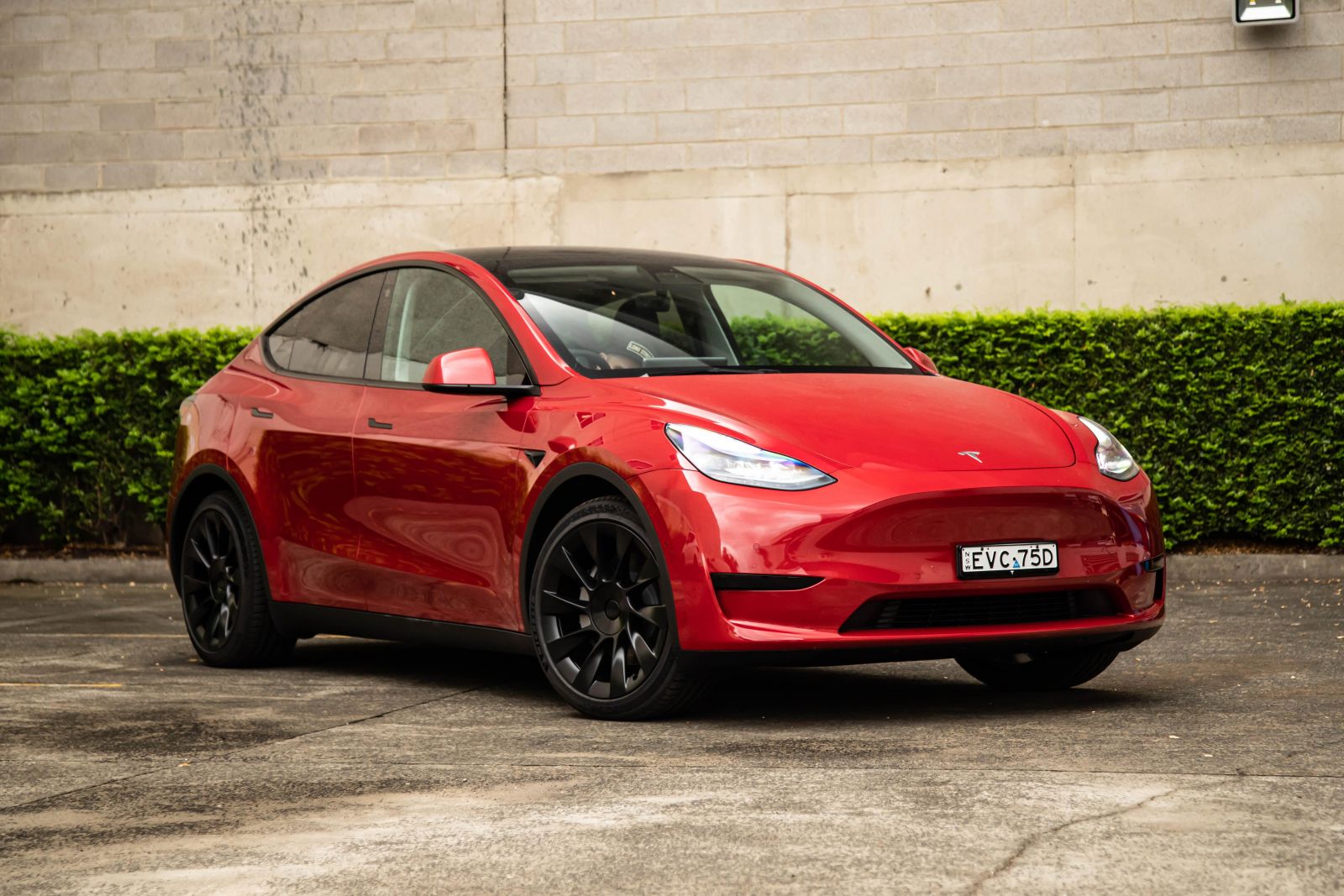The Tesla Model Y is under attack from all sides.
There are new electric car rivals coming to steal sales away from this popular model – and they’re arriving in the form of mainstream brands as well as premium players.
With the Model Y being abundant in terms of availability, however, it does seem to have a stronghold on the electric SUV segment – for now, at least.
It’s easy to see why. Go on the configurator and, if you believe the screen, you should be able to specify, order, pay for, and have your new Model Y arrive within about 12 weeks.
Some brands are only able to open their order books once every few months, and the allocations are exhausted within hours.
So is the ‘go-to’ status that the Tesla Model Y currently enjoys a warranted position? Or should you consider it, but shop around for something a bit more… special?
Read on to find out.
How much does the Tesla Model Y RWD cost?
Pricing for Tesla models changes so regularly, that it’s hard to pin down an exact list price from one week to the next.
Indeed, the Model Y is significantly cheaper than when it launched in Australia in June 2022 – it’s $3000 less for the base grade, and more than $7000 less for the Performance.
However, at the time of writing, the costs listed below are what Tesla is charging for the two different models in the Model Y range.
2023 Tesla Model Y pricing:
- Model Y RWD: $69,300
- Model Y Performance AWD: $95,300
Prices exclude on-road costs
The vehicle tested here is a base Model Y RWD, though it had the optional 20-inch Induction wheels ($2400) and Red Multicoat Paint ($2400).
Other available options include a Black & White interior for $1500 (this one was just the plain black, which I prefer), and then of course there are the so-called “Autopilot” options.
Enhanced Autopilot ($5100) adds:
- Navigate on Autopilot
- Auto Lane Change
- Autopark
- Summon
- Smart Summon
Then there’s the big fib, “Full Self-Driving Capability”, for $10,100, which takes the Basic Autopilot (which is adaptive cruise control with steering assist) and Enhanced Autopilot packages and ads further functionality.
Full Self-Driving Capability ($10,100) adds:
- Traffic Light and Stop Sign Control
- Upcoming: Auto steer on city streets
I don’t think I’d be ticking either of those boxes, but hey, let me know what you think!
Now, rivals. The obvious ones include the Kia EV6, which ranges from $72,590 for the base Air RWD, through to $99,590 for the GT, which directly rivals the Performance version of the Model Y.
Then there’s the Hyundai Ioniq 5, which has been updated for 2023 and beyond. It costs from $72,000 for the base Dynamiq RWD, through to the range-topping Epiq AWD at $85,000. There’s a go-fast Ioniq 5 N coming, too.
If you can deal with a slightly smaller option, you may also want to consider the Volvo XC40 or C40 Recharge Pure Electric, or the Genesis GV60. Or ,if your budget is malleable, the BMW iX3 is excellent.
There are heaps of other options, but would you choose one of these, or the Y?
What is the Tesla Model Y RWD like on the inside?
If you like minimalist interior design, you’re going to dig the Model Y – there’s really not a lot going on in the cabin.
That is, until you delve deeper into the 15.0-inch touchscreen media system, which is essentially the control hub for the entire car.
It’s not just where you listen to music or search the sat nav for charging spots; it’s also where you open the glovebox, adjust the steering wheel, play video games, check your speed, and even relax by the fireplace.
Seriously, there are so many functions on this screen, it’s somewhat overwhelming. It’s undoubtedly distracting when you’re driving, in my opinion.
There is no traditional instrument binnacle, so you have to glance away from the straight-ahead to check your speed, or the state of charge.
While there are volume controls on the steering wheel, the screen is basically the brain of the car, so you’ve got to use your brain to change anything (air-conditioning temperature, fan speed, seat heating, etc). Yes, there is a voice control system, but who can say they’ve ever had a terrific time using one of those?
Add to that, there’s no Apple CarPlay or Android Auto, and the screen may well be one of the main reasons you’d look at an alternative car. I know it’d take some convincing for me to sign on the line for a Model 3 or Model Y for this exact reason.
Aside from that, though, the interior offers some excellent and practical features, especially for family buyers.
There are dual wireless phone chargers up front, USB-C chargers front and rear, and a bunch of great storage options; including a massive centre console area with a few storage bins, big cup holders, lined door pockets, rear cup holders, rear map pockets, a flip-down armrest, and decent rear door storage, too.
Occupant space is good front and rear. With the driver’s seat set to my sitting position – I’m 182cm or 6’0” – I had ample space for my head, shoulders, knees and toes (hang on, I’ve been singing that to my daughter all week, but it’s the truth).
The flat floor means three across is a properly doable thing, and fitting a child seat? No hassle.
I had my 21-month-old daughter’s forward-facing baby seat in the car during my time in the car, and she absolutely loved the big glass roof. For those wondering, there are window-seat ISOFIX points, and three top-tether points as well.
A couple of other quirks I wasn’t so hot on? The key card thing seems like a silly gimmick. You swipe it on the B-pillar to get access to the cabin – if it works, it failed on the passenger side for me a couple of times
Then, swipe it on the centre console near the cupholders. Or use your phone. I much prefer the old car-shaped key fob of the Model S.
And, the door handles are dumb. Inside and out, they’re silly. Fight me.
As for storage, the boot is huge. With 854 litres of rear boot cargo capacity, there’s easily enough space for the luggage of a family of three or four.
My daughter’s bulky pram fit in with room to spare for groceries or backpacks, and there’s a clever storage well in the boot floor for additional stowage.
That means, then, there’s no spare wheel. If that matters to you, you could be in for a shock, as plenty of EVs don’t come with a spare, as it adds ‘unnecessary’ weight.
Oh, and there’s a ‘frunk’, too – 117 litres of cargo capacity under the bonnet means you can store your charging cables, or maybe chuck your wet towels and swimmers in there after a day at the beach – it’s a plastic-trimmed bin, where the boot is carpet-lined.
What’s under the bonnet?
You won’t find much but some black plastic shielding, a storage compartment, and a spot to fill up the washer fluid.
But when it comes to what powers the Tesla Model Y RWD, there’s more to it.
It has a single rear-mounted electric motor, producing approximately 220kW of power and 350Nm of torque. It is fed by a 60kWh battery pack. The RWD’s 0-100km/h time is sprightly but not special, at 6.9 seconds.
When it comes to recharging, the Model Y is capable of AC charging at a maximum rate of 11kW. On DC, the RWD has a max charge rate of 170kW. It uses a Type 2 AC, CCS DC plug.
Driving range on the WLTP standard is 455km.
How does the Tesla Model Y RWD drive?
It would be a cop-out to say it drives like an electric car, but that’s a fact.
That means you get the hallmarks of EV driving – near-silent movement; punchy, instant acceleration; and effortless responsiveness at almost all (legal) speeds.
The entry model isn’t going to be as dramatic as the Performance AWD, with a 6.9s 0-100 time versus the latter’s 3.7s claim. But if you don’t care about that, you will be happy with how responsive and easy the acceleration is in the base Model Y.
It also has some of the best regenerative braking you can get. It’ll coast and slow the car to a halt if you have the system set up to do so, and it can either Creep (where there is still some torque applied to the motor, so it’ll act like a normal car and creep forward when you release the brake) or Hold (stays still, no brake required).
It really is easy to get used to the braking response, and that can’t be said of all EVs.
The steering is quick to respond and has a little bit of feel to it, though the turning circle is quite large – it’s a big car with a long wheelbase, but I was caught off-guard in a couple of tight streets.
If you’ve read any other Model Y reviews you’ve probably seen some criticism of the ride quality, and it’s frankly warranted. It doesn’t ride great – it feels clumsy and lumpy at times, though it does handle itself well in corners.
The bigger concern that I had was that it was quite noisy on the road, and surface changes and lumps and bumps can be heard in the cabin.
That’s even more noticeable because it’s an EV and everything else (apart from the fan, which is pretty bloody loud) is quiet.
The other big thing that you need to consider is your interaction with the in-car systems.
The centre screen being the only screen means you have to look away from the road a lot more than in a more conventionally-designed car, and that means you’re innately more distracted.
Having so much information and so many of the car’s critical controls through that screen takes some learning, especially while driving.
The gear selector doubling as the cruise control (or, Basic Autopilot) activation switch also requires some brain rearrangement.
What do you get?
Model Y RWD highlights:
- 19-inch alloy wheels
- Adaptive LED lighting
- Black vegan interior
- 5 seats
- 15-inch touchscreen infotainment system
- Side and rear-view cameras
- All-around parking sensors
- Satellite navigation with charge network mapping, live pricing
- Dual wireless phone chargers
- 4x USB-C ports (2 x front, 2 x rear)
- 128GB portable storage for Sentry camera system
- 13-speaker sound system
- 12-way power adjustable front seats
- Heated front seats
- Heated rear seats (all three)
- Heated steering wheel
- Tinted glass roof
- HEPA air filtration
- Dual-zone climate control
- Power folding, auto-dimming, heated side mirrors
- Custom driver profiles
- Key card entry
- Smartphone app connectivity
- Electronic fold-flat rear seat releases
Model Y Performance adds:
- 21-inch wheels
- Performance brakes
- Lowered suspension
- Aluminium pedals
Is the Tesla Model Y RWD safe?
The Tesla Model Y was labelled the “top performer” by ANCAP in 2022, scoring a five-star safety rating but also managing the highest average score (weighted across the four criteria) of all vehicles tested during that year.
It achieved a 97 per cent score for adult occupant protection, 89 per cent for child occupant protection, 82 per cent for vulnerable road users, and 98 per cent for safety assist.
Unsurprisingly, it is loaded with standard safety technology.
Standard features include:
- 7 airbags incl. front-centre airbag
- Autonomous Emergency Braking (AEB)
- Forward, Reverse
- Car, Pedestrian, Cyclist detection
- Junction assist
- Backover prevention
- Blind-spot assist
- Lane keep assist
- Reversing, side view cameras
- Front, rear parking sensors
- Adaptive cruise control with stop/go
- Tyre pressure monitoring
- Automatic high-beam
- Intelligent speed limiter
Oddly, it doesn’t officially have rear cross-traffic alert like most other new cars.
It does, however, have a system that can detect moving obstacles (people, other cars) and brake for them, but it will not warn you of passing traffic if you’re in reverse and not moving, like most vehicles with RCTA will.
How much does the Tesla Model Y RWD cost to run?
The warranty stakes is arguably where Tesla falls behind in modern-day Australian motoring, as the brand only offers a four-year, 80,000km warranty.
However, there is a battery and drive unit warranty that spans eight years/160,000km for the RWD (eight years/192,000km for AWD), which will guarantee at least 70 per cent battery retention to that point.
There are no specific servicing intervals, but the Tesla site does have some recommended items to maintain – a brake fluid health check every 24 months, cabin air filters every two years, HEPA filter replacement at three years, and air-con service every four years, as well as the usual tyre rotation and wheel balancing.
When it comes to efficiency, the Model Y RWD has a pretty impressive claimed number – 14.6kWh per 100 kilometres. If you can achieve that, you’re doing very well, and you should be able to recharge it at home for about $13 off-peak from empty (based on NSW average rates of 20.5c/kWh).
If you’re wondering what I saw during my time in the Model Y RWD, the figure was 15.9kWh/100km across a mix of urban, suburban and freeway driving. I was impressed.
Charging times will vary depending on how much power you’re putting into it. If you just plug into a standard 220V outlet at home, it’s going to take a very, very long time. Get yourself a 7kW home charging station on single-phase electricity, and it’ll take somewhere in the region of 11 or 12 hours to fill.
That’ll drop to about 60 minutes from 0-80 per cent at a 50kW fast charger, or more like 18-20 mins at a Supercharger or any charging station pumping out 150kW or more.
And the other big benefit of buying a Tesla will be the fact that you get access to the Supercharger network, Australia-wide. There are more than 50 super-fast stations across the country, but hundreds more of Tesla’s slower destination chargers too.
CarExpert’s Take on the Tesla Model Y RWD
The Tesla Model Y really does deserve its stranglehold on the EV SUV market.
It ticks so many boxes that, if you can learn to live with the weird interior minimalist quirks, it will no doubt fit your requirements if you want an electric car that offers a lot of value, space, and cred for your money.
Click the images for the full gallery
MORE: Everything Tesla Model Y


